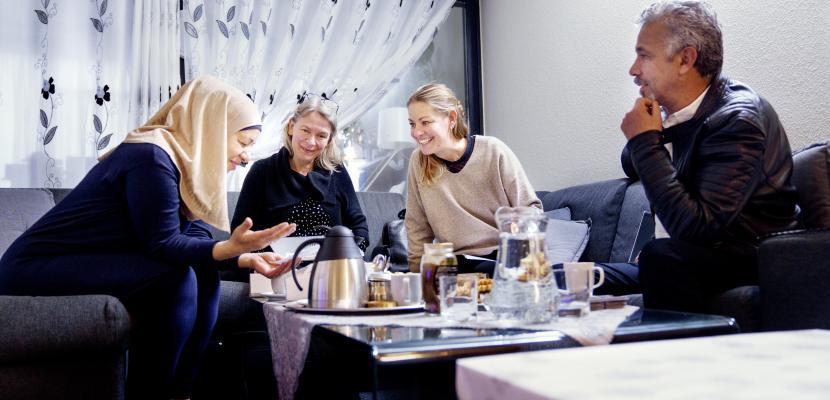
Staircase to Staircase

About this good practice
The project has developed an innovative and holistic employment initiative for
families. The initiative focuses on providing unemployed parents with a stable
connection to the labor market, getting more young people into education and
part-time jobs, ensuring regular school attendance for children, and improving
the overall well-being and future opportunities of families.
The method involves employees building trusting relationships with families,
encouraging them to open up, share their hopes and desires for the future, and
address fundamental challenges.
Through a holistic and interdisciplinary approach to the entire family, social
and family problems that often hinder successful employment initiatives can be
addressed.
This transformation requires a significant collective effort from employees and
leaders across departments in Aarhus Municipality. Ten full-time employees from
five different departments work together in a local office in Gellerup, led by a
full-time team leader. The team has authority in all administrative areas and can
assist the family with almost everything they need.
To ensure sustainable changes, employees cooperate with various civic
organizations in the area.
Expert opinion
Resources needed
Staircase to Staircase has gone from being a project to becoming part of the daily operation of the offers the municipality offers. This means that methods and approaches used in Staricase to Staircase must now be disseminated in the municipality.
Evidence of success
The municipality saves an average of over 100,000 DKK per family per year in the social sector. Over a four-year period, Staircase to Staircase is estimated to have resulted in total savings of at least 15 million DKK (EURO 2 mio) in the social and employment sector for the 62 families .
Parents have increased their participation in the labor market. 52% currently is in education/employment; 21% have, after many years in the social assistance system, been clarified for early retirement pension.
Potential for learning or transfer
Staircase to Staircase is built on three interdependent approaches.
Firstly, relational welfare emphasizes prioritizing citizens over the system. Instead of
providing pre-made solutions, we collaborate with citizens to co-create solutions that
meet their needs.
Secondly, the holistic and interdisciplinary approach ensures that team members
operate as generalists and specialists. This dual role allows for a comprehensive
and cohesive effort, enabling an integrated and effective response to various
challenges.
Lastly, the job-first and network-based employment approach is grounded in the
principle of simultaneity. We secure part-time jobs for individuals while
simultaneously addressing other challenges they may face. This dual focus helps
families stabilize their employment situation while receiving support for other issues.
Each family is assigned two contact persons within the team who are responsible
for addressing any tasks the family needs help with.
